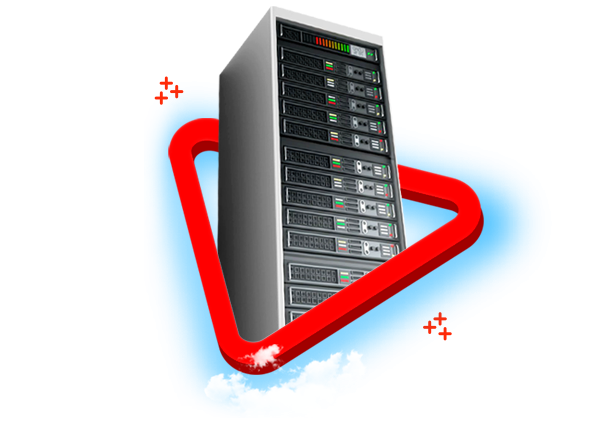
The difference between static and dynamic IP; When we want to say the address of a place, we can address using the names and numbers of the streets. But in the electronic world, the addressing is a little different. When you use an electronic device (connected to a network or Bluetooth), an address is registered on your device, which is called an IP address.
But this is a slang meaning of IP. On the other hand, there are different types of IPs, and to choose them, we must have comprehensive and complete information. So stay with us to provide explanations about the details of a suitable IP.
What is IP?
Table of Contents
When you intend to post a shipment, you must have the recipient’s address or the postal code of the destination in order to be able to send the shipment to the destination. The IP address plays exactly the same role in the digital world. IP address (IP), which is an abbreviation of Internet Protocol Address, is a term consisting of numbers that is assigned to every device connected to the Internet. This address acts like the recipient’s postal code, and is used to transfer data and information in the digital world. What is the law of IP numbers?
This expression consists of a 32-bit number in base two. But for ease of reading, the 32-bit number is divided into four parts using a dot, and the number of each part is converted to base 10. For example, 192.15.254.1 is an IP address. The IP address is also a unique address for a device, just like a postal code. Each number ranges from zero to 255. That is, in general, the IP address ranges from 0.0.0.0 to 255.255.255.255.
Where does the IP address come from?
Anyone who pays attention to the different numbers and figures of IP addresses will definitely notice a rule. Then, the question arises, by whom or organization these numbers are produced and how are they available to us? IP addresses are generated by IANA, which stands for Internet Assigned Numbers Authority.
Then, IANA provides these addresses to Internet service providers, and we, as Internet consumers, can enjoy the benefits of the Internet by purchasing the Internet. So the device through which we connect to the Internet will have an IP. But IP is of two types:
- Private IP
- Public IP
In the following, we intend to explain these two types of IP. Then we go to check the difference between static and dynamic IP.
Private IP address
To define a private IP address, it should be said that generally every electronic device that connects to the global Internet will have its own IP address. All devices such as computers, laptops, tablets, TVs, printers, etc. have a dedicated IP. With the increasing expansion of the Internet and devices connected to the Internet, the number of Private IP is increasing. Because dedicated IP addresses are local, there is no charge for them.

Public IP address
Public IP is the main address associated with the entire Internet network. This means that every device connected to the Internet has two IPs. A dedicated IP that is specific to the device itself, and the other is the main address of the Internet network. Public IP addresses are generated by the ISP and provided to the router. To have a public address, a fee must be paid.
Public IP addresses are divided into two categories: dynamic and static. Now we want to examine both cases and determine which one is more suitable.
Dynamic IP
A dynamic IP address is a type of IP that is assigned to your device every time you connect to the Internet. Many home devices use this type of IP. When you purchase Internet services such as Wi-Fi from different companies that provide these services, you are actually assigned a dynamic IP address.
How dynamic IP works
These addresses are provided to different companies in a certain number. For example, a carrier may have IPs in the range 0.0.0.0 to 125.125.125.125. And other companies also have a number of IPs. These IPs are stored in the pool and when a user connects to the Internet, this address is provided to the connected device. After the internet is interrupted, the desired IP returns to the pool to be available to another device.
Static IP
A static IP is a type of IP address that is assigned to a device by a DHCP server. DHCP stands for Dynamic Host Configuration Protocol, which means a protocol that manages the automatic distribution of IP addresses. In fact, they are hosting and IP service providers.
How static IP works
Static IP is assigned to a user and his device by Internet service providers. A fee is charged for this service. In this case, as long as the user pays his IP rent, this IP will be specific to the desired device and will not be assigned to another device.
The difference between dynamic and static IP
Each of the IPs has its own properties, according to which users choose the most suitable IP. In this section, we will discuss the different characteristics and differences between these two IPs.
- Fixed and dynamic IP cost
Dynamic IP does not cost the user and everyone can use it for free. On the other hand, the purchase of fixed IP is assigned to users for a fee. So if someone wants to reduce the cost, dynamic IP will be more economical.
- Remote working with fixed and dynamic IP
Recently, due to the development of technology, all jobs are moving towards remote work. Since a fixed IP is permanently assigned to a device and does not change, it will be easy and possible for other devices to find and connect to a device with a fixed IP. But if the central device has a dynamic IP, it will be very difficult to find the IP of that device. Also, Dynamic IP will get a new IP every time it disconnects, and other devices can’t find the new IP. So for remote work, static IP is better.
- Fixed and dynamic IP server and hosting services
Companies that provide server services need a strong and always connected internet. On the other hand, devices that receive hosting and server services must be able to connect to the central server. So by using fixed IP, it will be possible to track and find the central server. But dynamic IP does not allow this to the device.
- Fixed and dynamic IP security
As we said, dynamic IP is constantly changing. This is because the static IP never changes. Now this feature makes tracking a device faster. If you have a business that is concerned about information leakage or being hacked by hackers, a static IP is not a good option for you. Because you will be traceable and accessible very soon with this IP. Dynamic IP is more suitable for such jobs and businesses. Because every time you connect and disconnect the Internet, the IP address of your system changes.
What was said in this article…
The difference between static and dynamic IP; In this text, we talked about the definition of IP and its types. IPs are divided into private and public IPs. We have given the definition and explanation of each. We also said that public IP is divided into two categories: dynamic and static IP. Dynamic IP is a type of IP that is constantly changing. In contrast to static IP, it is a type of IP that is permanently assigned to a device.
But static and dynamic IP each have their own advantages and disadvantages. People who use the Internet must consider some things to choose a static or dynamic IP. Things like security, cost, remote work and server services should be checked by the user to choose the best type of IP. You should know that it is very easy to track and find a device that has a static IP. This trait is both good and bad. On the one hand, the security of the user and his information is not guaranteed, but the connection of other devices to the device with a fixed IP has led to the growth of jobs and remote job positions.
Frequently Asked Questions
- What is a static IP?
Static IP is the type that cannot be changed and is assigned to a device and a user.
- What is a dynamic IP?
This type of IP will change regularly and when the Internet is disconnected and connected.
- Is dynamic IP more secure or fixed IP?
Since the static IP does not change, it will be easy for hackers to track and find its information. So the dynamic IP security will be better and more. Because it changes constantly.
- To do remote work of a company, is a fixed or dynamic IP suitable?
Static IP cannot be changed and it is easier to find this type of IP for devices that are trying to connect to the main device. For this reason, fixed IP is suitable for remote work.
- Is it expensive to get fixed and dynamic IP?
Dynamic IP is free of charge. But the fixed IP is assigned to the user for a fee.
- To provide hosting services, should we get a static or dynamic IP?
Hosting and server services require IP stability to connect to other devices and provide services. So, static IP is definitely the most suitable option compared to dynamic IP.
CATEGORY:Blog











